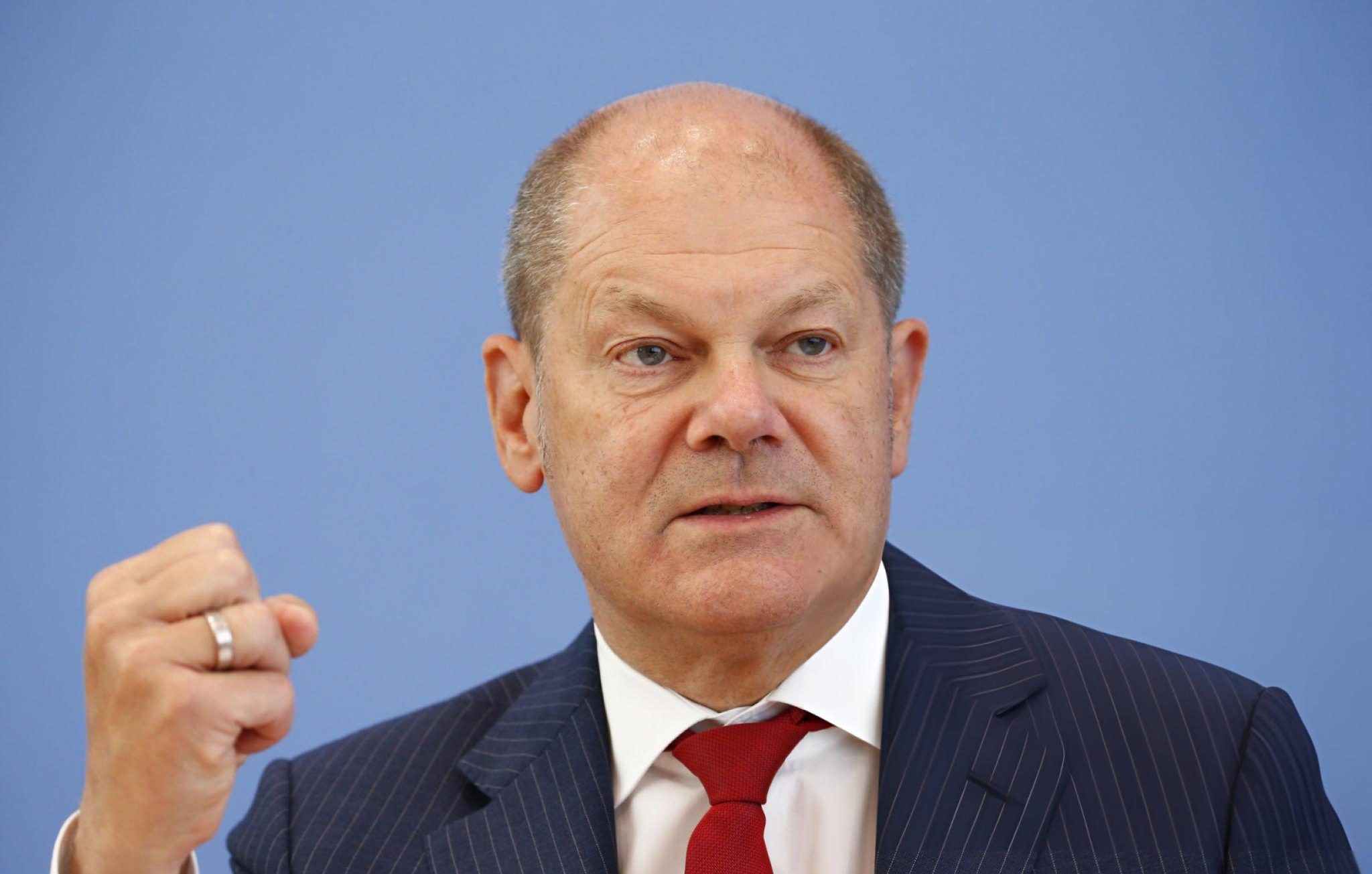German Chancellor Olaf Scholz has vowed to implement stricter knife laws and expedite the deportation of rejected asylum seekers following a deadly stabbing attack in Solingen. The attack, attributed to a 26-year-old Syrian national with extremist ties, left three people dead and eight others injured, intensifying scrutiny on Germany’s immigration and security policies.
Scholz made these statements during a visit to Solingen, where he joined regional officials in laying a white rose at a makeshift memorial for the victims. Expressing his outrage, Scholz declared, “I am furious and angry about this attack. We must do everything to ensure that such things never happen in our country, if possible.”
The suspect, who had previously had his asylum application rejected, was supposed to be deported to Bulgaria last year. However, his deportation failed when he disappeared, highlighting ongoing issues within Germany’s immigration system. Federal prosecutors have revealed that the suspect shared the radical ideology of the Islamic State group and was acting on these beliefs when he attacked the festival-goers from behind.
In response to the incident, Scholz announced plans to tighten knife laws. Interior Minister Nancy Faeser had earlier proposed limiting the permissible blade length of knives carried in public from 12 centimeters (4.7 inches) to 6 centimeters (2.4 inches). Scholz supported this measure, stating, “This should and will happen very quickly.”
Additionally, Scholz emphasized the need to enhance deportation processes. He noted that there had been a 30% increase in deportations this year and pledged to further improve these figures. Scholz highlighted that Germany has expanded deportation possibilities and is focusing on reducing irregular migration through increased border checks, particularly on the country’s eastern frontiers.
Following a similar knife attack by an Afghan immigrant in Mannheim in May, which resulted in the death of a police officer and injuries to four others, Scholz had already announced plans to resume deportations to Afghanistan and Syria. Germany has suspended deportations to these countries due to security concerns and the lack of diplomatic relations with the Taliban in Afghanistan. Scholz indicated that the government is working on solutions to facilitate deportations to neighboring countries or potentially to Syria.
However, critics argue that progress has been slow. Sonja Kock, a spokesperson for the Interior Ministry, confirmed that efforts to address these issues are ongoing. Opposition leaders, including Friedrich Merz of the Christian Democratic Union (CDU), have demanded more decisive action. Merz criticized the government’s handling of the situation, stating, “We have been discussing the consequences of Mannheim for three months… it’s enough. We must now do something together.”
Merz and other critics argue that Germany should strengthen its border controls and ensure that individuals who are not eligible for asylum are prevented from entering or remaining in the country. Scholz’s announcement comes at a politically sensitive time, with state elections in Saxony and Thuringia this weekend. The far-right Alternative for Germany (AfD) party is expected to perform strongly, potentially impacting the ruling coalition’s results.
As Germany grapples with these challenges, the Solingen attack has reignited debates on immigration, security, and the effectiveness of current policies. Scholz’s proposed measures aim to address both immediate security concerns and broader issues related to the management of asylum and deportation processes. The effectiveness of these initiatives will likely be scrutinized as Germany continues to confront the complexities of its immigration and security landscape.







